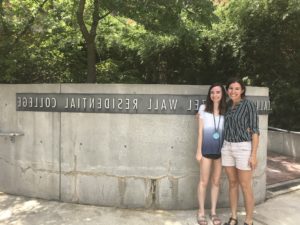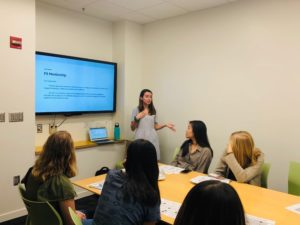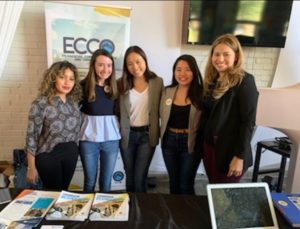Changemaker Catalyst Award recipient Tara Nored started a non-profit called CollegeFit in order to increase college admissions equality and encourage students to look for the best college fit. Tara is a sophomore majoring in International Development and English.
It was 2am. I was fifteen. In three years, I would pack my bags for college. I should have been focusing on high school: my classes, my clubs, my friends. But instead, my nightly routine centered around CollegeConfidential.org, a safe haven source of information that idealized ‘the best four years of your life.’

Fast forward to May 2019. Tulane University landed on my radar, and I applied because the application was free. I did not consider Tulane as a frontrunner option until a few months before my decision was due.
My point is this: I scoured the internet for years in order to find the best college for me, and still, the journey was difficult and confusing. Thanks to supportive parents, well-informed college counselors, and financial stability, I found the right school and was able to attend. During my freshman year at Tulane, I discovered that my story was the exception, not the standard.
Most top 50 colleges in the United States have extensive financial aid packages for low-income students. The common application allows students to apply to schools across the country. So why is it so hard for students to find the best college for them? After doing a bit of digging and talking to other undergrads, I concluded that scouring the internet to find the best college didn’t help me. In fact, it hurt me, because I ended up focusing on school rankings rather than school fit. Additionally, underrepresented students are significantly disadvantaged in the search for higher education due to a serve lack of resources. Every year, ACT tutoring, application fees, and tuition itself deter capable and hard-working students from attending college. Moreover, knowledge about affordable options like fee-waivers, how to write an essay, or even about the culture of college are untapped wells of know-how that put underrepresented students at a disadvantage.

Simple solutions to complex problems are often evasive or non-existent, but I believe that one step in the right direction is creating a system that provides authentic information from real college students to applicants.
Thus, I founded CollegeFit. The model for CollegeFit is simple. We connect underrepresented high schoolers with college mentors to provide free application assistance. With funding provided by the Changemaker grant, I was able to get CollegeFit started, accomplishing more than I originally thought possible. Over the summer, I created a website, designed social media accounts, gathered a team of mentors from seven different states, and wrote the bylaws for the non-profit. During this school year, the CollegeFit team expanded to include a current board of seven students and twenty-six trained undergraduate mentors. Our team averages 220 hours of mentorship hours per semester.

As shown in the photos above, we have attended two college fairs in the New Orleans area to recruit high school students for our programs. We have also partnered with ECCO, another non-profit dedicated to providing educational resources to Hispanic youth. Together, we will be attending a Multicultural Education Fair. We are also looking forward to working with the New Orleans Public libraries to provide free test-prep books to mentees.
From this experience, I have learned that complex problems often require bottom-up solutions. No model, including mine, will single-handedly tackle such a large issue. However, placing power and resources in the hands of the primary stakeholders- the “changemakers”-is a significant first step in creating educational equity. Through the Changemaker grant, I was able to see “Changemaker” principles in practice: social entrepreneurship, for example, involves solving ‘root’ issues rather than just the symptoms of a problem. Through every mentorship session, every essay edited, and college fair attended, I hope that CollegeFit continues to positively impact the landscape of college admissions. In short, I am thankful for the opportunity to create tangible, real change.
This is the home screen for the CollegeFit website, which I launched using funds from the Changemaker grant. More than building a brand, I was able to learn about client retention and customer acquisition cost.

